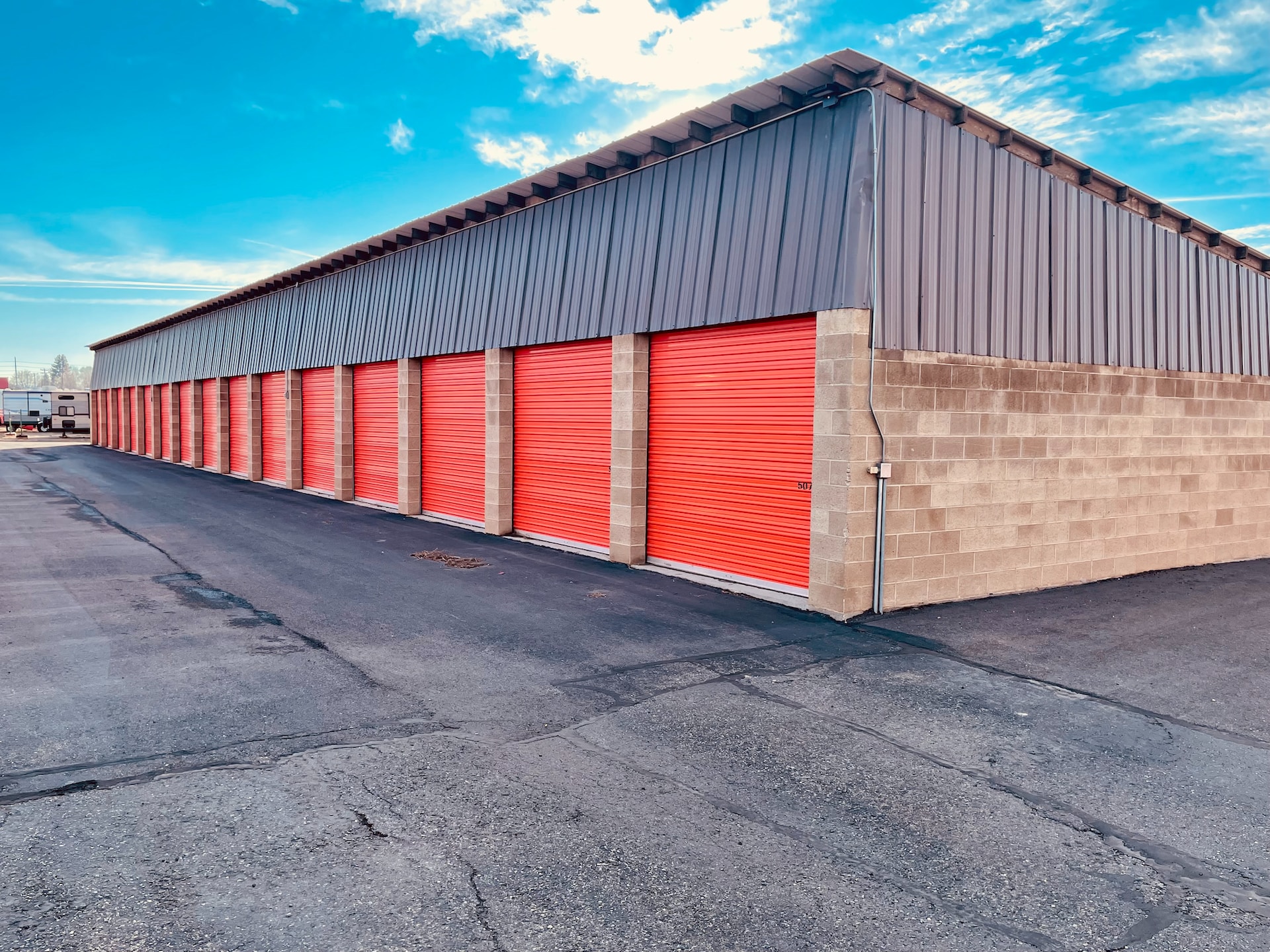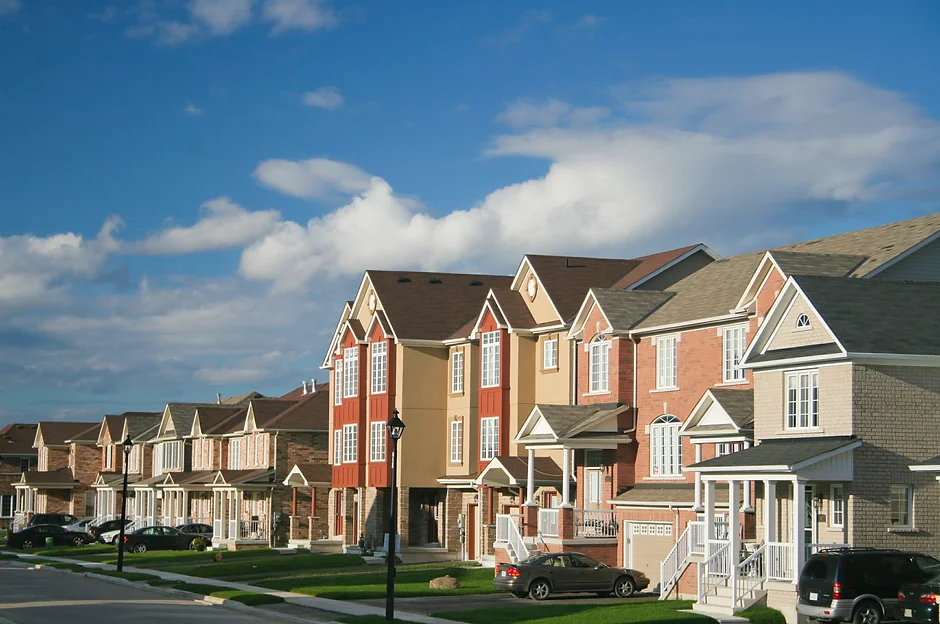
According to a 2022 CNBC/Momentive Poll, 23% of Americans identified real estate investing as the best way to build lasting wealth, placing it ahead of the stock market, self-employment, and additional jobs. As any sophisticated or accredited investor will tell you, don’t work hard for your money, have your money work hard for you.
At Bishop Investing Group, we put this mantra to practice with sound, risk-adjusted investments in some of the most predictable, productive real estate assets countrywide. Through proven partners, private funding, and alternative ventures, we connect real estate investors with leading Operators across diversified geographic locations.
Our sponsored assets in value-add multi-family, self-storage, and manufactured housing communities are second to none*.
A Well Managed Investment Strategy
Passive investments in commercial assets are especially critical in today’s inflation-heavy markets. The volatility of stock exchange-traded funds drives more financial advisors, money managers, and savvy investors to commercial property ventures.
Whether you’re looking to access capital from your individual retirement accounts, allocate money from other investments, or take your first dive into the real estate business, income-producing real estate can be your gateway to long-term wealth accumulation.
Fortunately, there are many ways to capitalize on real estate investments in 2023. Enjoy risk-adjusted returns across attractive asset classes. Let’s discuss what to do with $100k for maximum capital preservation, equity gains, and cash flow potential.
$100K in Real Estate Investing vs. Stock Market Investing
Whether Real Estate Investment Trusts (REITs), residential real estate rental properties, institutional-grade assets, commercial mixed-use syndication, or industrial complexes and properties, real estate investors enjoy a range of investment options.
As uncertain financial forecasts loom, diversification across a range of assets – including commercial real estate property investments – is increasingly important. These real property investments are usually less volatile and more inflation-proof than any index fund, mutual fund, or other stock market security.
Real estate investments generally have lower liquidity compared to stock market mutual funds, as buying or selling properties can be time-consuming, involving legal processes, inspections, and negotiations. However, investing in real estate investment trusts (REITs), real estate syndicates, or real estate crowdfunding platforms can provide more accessible liquidity options and shorter investment terms.
Invest $100k in Real Estate with Proven Assets
The National Council of Real Estate Investment Fiduciaries indicates that commercial realty has provided an average annual return of 9.5% over the past 20 years. Meanwhile, the S&P 500 has delivered an average annual return of 6.1%.
Because real estate is a tangible asset with real-world utility, rents and property values tend to increase alongside inflation.
Whether you’re directly investing in a rental property, like residential property, or buying portions of a limited partnership that owns office buildings, real estate property investments can be lucrative, stable, and predictable*.

Three Reasons to Start Investing Seriously in Commercial Real Estate Assets
A turnkey multi-family property, mobile home park, industrial facility, or self-storage asset can easily help you meet your financial and investment goals. By owning stabilized and/or value-add property, you can minimize taxes and generate income that builds across a diversified real estate market.
When you want to put your retirement savings, hard-earned capital, or investment account to good use, invest in real estate that produces. Syndicated ventures especially offer accredited or sophisticated real estate investors numerous advantages.
(1) Capital Gains Tax & Other Tax Advantages
Want to know how to invest $100k wisely and passively for maximum return on investment (ROI)? One investment strategy is getting money invested in commercial ventures and value-add projects for capital gains.
If you don’t like to pay capital gains taxes or pay taxes in general (who does?), you’ll love the syndication model. You can even defer capital gains taxes by exchanging an investment property into a syndicate through a 1031 exchange – we can help with this at BIG, or 1031ing from one syndication project to the next.
Let’s also not forget accelerated depreciation, which can allow the Operator to show a loss on your pass-through K-1 statement via a cost segregation study. Additionally, a supplemental loan or refinance can be leveraged to return substantial invested equity (a non-taxable event).
Real Estate Taxes and IRA Risk Tolerance
In some cases, you may be able to use a self-directed IRA (SDIRA) to put your investment profits back into your IRA, tax-free. This differs from using a traditional IRA for a down payment on a home, so ensure you understand your investment options. Consult a financial planner before doing anything with your traditional, self-directed, SEP, SIMPLE, or Roth IRA.
Overall, the tax benefits of real estate are critical to investors in value-add multi-family property, manufactured housing, industrial facilities, and self-storage assets.
Are you unsure how to invest large amounts of money wisely?
Invest in real estate with a strong sponsor and fellow partners, and you may enjoy robust passive returns*.

(2) Cash Flow Distributions & Dispositions
Whether it’s small rental properties, large-scale mobile home parks, or lucrative industrial assets, cash is king! As you know, cash flow is a critical aspect of commercial real estate investments, especially in the case of syndication, when investors pool their capital to invest in more large-scale real estate deals.
Real estate cash flow refers to the net income generated by the investment property, including all rental income, less operating expenses such as property management fees, maintenance costs, insurance, taxes, and other expenses.
How Your Money Gets Distributed
In a syndication investment, investors typically receive their returns as monthly or quarterly cash distributions. These distributions are a portion of the cash stream generated by the investment property and are typically based on each investor’s ownership percentage in the property.
In this case, if an investor contributed 10% of the capital, they would receive 10% of the monthly or quarterly distributions.
Before you decide how to invest $100,000, understand the cash distribution structure*.
Meeting Financial Goals Based on Sponsorship Waterfalls
As a passive investor, your involvement in a syndication venture is typically minimal. The sponsor of the syndication, who is responsible for managing the investment, will often set aside a portion of the cash income for reserves for unforeseen expenses or future capital expenditures. The remainder will then be distributed to investors.
In some cases, the sponsor may also choose to reinvest some of the cash streams back into the property towards value-add efforts to increase the property’s value and generate higher returns over the long term. These value-add decisions may significantly increase revenue.
At Bishop Investing Group, our partners most often structure deals with a waterfall, whereby limited partners (LPs) receive profits until they reach a preferred return. After this point, waterfalls usually follow a predetermined split structure. One example is a 70/30 split in which LPs receive 70%, and the general partner (GP) receives 30% of the profits. A value-add rental property may deliver healthy returns quickly and consistently*.
Your risk and involvement in a venture depend on the precise business proposition, the investment materials, and the Operator responsible for management of the asset.
While investors may have the opportunity to provide input on major decisions or participate in votes on certain matters, the level of involvement in decision-making is typically limited. Investors rely on the expertise and decisions of the sponsor or operator who manages the syndication investment.
At Bishop Investing Group, we align investors with only the most trustworthy Operators across asset classes to maximize the likelihood of predictable, sustainable returns*.
(3) Commercial Real Estate Appreciation
Real estate appreciation is the increase in the value of a property over time due to market forces such as supply and demand, inflation, and economic growth. In addition to providing capital gains, appreciation can also result in higher returns due to an increased value of the property on exit.
Changes in interest rates and other macroeconomic factors can influence real appreciation. For example, rising interest rates can make it more expensive for investors to finance real estate purchases, putting downward pressure on property values. Consult financial advisors about associated risks.
In most syndication models, you may also (and the aim is to) force appreciation via value-add activities such as renovations to increase rental income or bringing in a new property management team to reduce expenses*.
Maximize Appreciation and Unlock Financial Independence
Real estate investors can take steps to maximize appreciation potential, such as investing in properties in high-growth markets or making improvements to increase passive income. However, one should note that appreciation is never guaranteed and can vary based on a wide range of unpredictable factors.

Overall, the benefits of real estate investing are numerous and can provide investors significant advantages over other types of investments like stocks and mutual funds. With the potential for tax benefits, cash flow, and forced (value-add) and/or natural appreciation, real estate is an attractive option for those looking to start investing in a new asset class or diversify their investment portfolio*.
How to Invest $100k in Real Estate for Optimal Asset Diversification
If you’re used to mutual funds and index funds but want to learn how to make money with 100,000 dollars in real estate, feel free to contact us at Bishop Investing Group. We partner with seasoned operators across multiple geographical and asset class categories.
If you have questions about investment minimums, target returns, sponsor track records, or our investor relations approach, we have answers.
Whether using a retirement account, private money, or other capital sources, the best way to invest 100k $ in real estate is through large-scale commercial syndications. Rather than put $100k in real estate blindly or with one project, diversify your portfolio with top operators.
Minimizing Risk and Maximizing Returns Through Multiple Asset Classes
Various asset classes can help you earn a regular income, grow equity, influence appreciation, and reap many tax advantages. You can minimize your active involvement while maximizing your ROI.
Ready to allocate your capital with professional teams dedicated to optimizing property performance, enhancing rental income, minimizing vacancies, and implementing value-add strategies?
Start your passive investment with Bishop Investing Group and align with leading operators across value-add multifamily, self-storage, industrial facilities, and manufactured housing communities.
Put $100k in real estate with ease and peace of mind, knowing your money is working for you*. Here are a few ways you can do it:
Value-Add Multi-family Properties
A value-add multi-family property is an apartment complex that requires some work to realize its full potential. This work can range from cosmetic updates, such as new paint and carpet, to more significant renovations, such as adding amenities like a gym or pool. Value-add properties are typically purchased below market value and get repositioned to generate higher income and valuation.
One of the inherent risks of value-add properties is the required execution. Successful value-add multi-family syndication investments require a high degree of sophistication and expertise.
Syndicators must be skilled at identifying high-potential properties, managing renovations and improvements, and effectively marketing the property to attract tenants and ultimately exit the property. Additionally, they must be able to navigate complex legal and financial considerations related to syndication, including SEC regulations and investor relations.
Moreover, investors must consider liquidity. The liquidity of value-add properties may be lower compared to stabilized or turnkey multifamily properties, as they may attract a more specialized investor pool seeking value-creation opportunities.
In a strong real estate market with high investor demand and favorable financing conditions, liquidity for value-add multifamily properties may be relatively higher*.

Advantages of Value-Add Multi-family Properties
High potential for income and appreciation
By adding value to the property, you can increase the rental income and property price, thereby generating better returns on investment. Additionally, the potential for economies of scale can be high.
Stable tenant base
Unlike single-family rental properties, multi-family properties tend to have a more stable tenant base, reducing the investment risks of vacancies and lost rental income.
Diversified revenue streams
Multi-family properties tend to produce income via cash flow from rental payments, capital appreciation, and in some cases tax benefits, offering investors various revenue streams through which they can grow their wealth*.
Self-Storage Facilities
Self-storage assets are commercial real estate properties that provide storage space to individuals and businesses. These facilities typically feature a variety of storage unit sizes and configurations, and tenants rent space monthly to store personal or business belongings.
The self-storage industry has seen steady growth in recent years, with the total amount of self-storage space in the US growing from approximately 2.6 billion square feet in 2010 to 3.9 billion square feet in 2020, according to the Self Storage Association.
Self-storage assets generally have relatively higher liquidity compared to other types of real estate investments. This is primarily due to the asset class’s perceived stability, steady cash flows, and demand from investors seeking alternative investments.
Additionally, the industry has demonstrated resilience during economic downturns, with self-storage occupancy rates remaining relatively stable during the COVID-19 pandemic.
Advantages of Self-Storage Assets
Low overhead costs
Self-storage facilities typically have lower maintenance and operating costs than other commercial properties, making it easier to generate positive cash flow. As a result, these investments are generally lower in risk and require less involvement.
Healthy demand
The demand for self-storage units is relatively consistent, and tenants tend to be less price sensitive given the lower rental cost compared to other asset classes, making it a stable investment opportunity.
With population growth and more people downsizing due to economic pressures, self-storage facilities are in increasing demand.
Low tenant turnover
Tenants of self-storage facilities typically rent units for extended periods, reducing vacancy rates, unit-turn costs, and lost rental income*.
Manufactured Housing Communities (i.e., Mobile Home Parks)
Are you wondering how to invest $100,000 or even one million dollars in an asset class that delivers?
Manufactured Housing Communities, often referred to as mobile home parks or trailer parks, are communities of prefabricated homes, typically owned by their occupants and rented on the land on which they rest. These communities provide affordable housing options for individuals and families and can also offer amenities such as community centers, playgrounds, and laundry facilities.

The Manufactured Housing Community industry has experienced a consistent expansion in the past few years, with approximately 8.5 million people living in manufactured homes in the US in 2020, according to the Manufactured Housing Institute.
However, because manufactured housing communities are still relatively niche, the buyer pool is usually more specialized, including experienced operators or investors familiar with the unique dynamics of this asset class. As a result, the liquidity of mobile home parks is more limited compared to other real estate asset types.
Advantages of Manufactured Housing Communities
High demand
The demand for affordable housing options is typically high, making it a stable investment opportunity. It also takes a significant level of financial effort and time for residents to accumulate sufficient resources to permanently leave, making this real estate class consistently productive.
Recession Resilient
Manufactured homes are a more cost-efficient way for people to live, particularly during economic downturns. As housing markets experience turbulence, manufactured housing communities provide an alternative option for those affected to maintain their financial responsibilities. This makes manufactured housing communities especially resilient to periods of economic decline.
Lower operating costs
The operating costs of a manufactured housing community or mobile home park can be lower than other multi-family properties. Other asset types such as retail properties, office buildings, and apartment communities will often carry higher expenses due to complexity and scale*.
Real Estate Investment Trusts (REITs)
REITs offer a way for investors to participate in the real estate market without having to directly own physical property. These are entities that own, and often operate, income-producing real estate such as apartment complexes, warehouses, office buildings, hotels, shopping malls, and even data centers. They trade on major stock exchanges, making them accessible to all types of investors.
In essence, when you buy a share of a REIT, you’re purchasing a small piece of every property that the company owns. This can provide a level of diversification that would be challenging to achieve for most individual investors.
While some REITs may allow shareholders to participate in voting on major decisions, such as acquisitions or changes to the REIT’s structure, the level of involvement in such decisions varies depending on the specific REIT and the rights afforded to shareholders. Investors should familiarize themselves with the governing documents, such as the REIT’s prospectus and bylaws, to understand their rights and involvement opportunities.
Advantages of REIT Investments
Liquidity
Unlike direct real estate investments, REITs can be bought and sold with ease on the stock market, offering the flexibility of liquidating your investment when needed.
Diversification
REITs provide diversification by investing in various types of real estate assets across different geographical locations. This diversification can reduce investment risk.
Dividend Income
REITs are required by law to distribute at least 90% of their taxable income to shareholders annually in the form of dividends, providing a steady income stream for investors. Notably, in many cases the dividends distributed to REIT investors do not qualify as ‘qualified dividends’ according to the IRS definition, meaning high returns may be taxed at a higher rate.
Professional Management
Like syndicates, REITs are managed by professional teams with industry expertise, which takes the burden of property management off the shoulders of investors. Your level of involvement is minimal*.
What Are The Risks of REIT Investments?
Like any investment, REITs also come with risks. These include market risk, where the value of the REIT can fluctuate based on market conditions, and interest rate risk, where rising interest rates can impact the cost of borrowing for REITs and affect their profitability. There are also regulatory risks, distribution risks, and most notably, property-specific risks.
Because REITs own and manage a portfolio of properties, investors are exposed to risks in property occupancy rates, lease renewals, property damages, regulatory changes, and potential liabilities associated with owning and operating real estate assets. Investors should evaluate the quality and diversity of the REIT’s property portfolio to assess the level of risk exposure.
Therefore, if you’re considering investing in REITs, a financial advisor can help you understand the potential benefits and risks, and how investing in REITs fits within your overall investment strategy and financial goals*.
Industrial Real Estate Properties
Industrial real estate consists of properties that are primarily used for manufacturing, production, storage, distribution, and research and development purposes. They can range from small flex spaces that combine an office and warehouse to large logistics facilities that accommodate manufacturing and distribution activities.
According to the National Association of Real Estate Investment Trusts (NAREIT), the total market capitalization of the industrial sector in the United States was around $1.2 trillion as of the end of 2020. The boom of e-commerce and the increasing demand for last-mile delivery services have significantly driven the growth of this sector.
Nonetheless, industrial real estate investments typically have lower liquidity than other asset classes due to long transaction processes and complex risk profiles. Given current supply chain breakdowns, operators and investors should continue to closely evaluate logistics and distribution networks. Property conditions, lease structures, and interest rates are other notable risks to assess.
Depending on your risk tolerance and financial objectives, the potential benefits of these investments may far outweigh the potential disadvantages.
Advantages of Industrial Real Estate Properties
Stable and high income
Industrial leases are often on a triple net (NNN) basis, where the tenant pays for property taxes, insurance, and maintenance. This leads to a steady income with lower expenses for the landlord.
Longer lease terms
Industrial properties typically have longer lease durations, often between 5 and 10 years, which provides a stable, long-term income stream.
Low maintenance costs
Industrial properties generally require less maintenance than residential or retail properties, as tenants tend to handle most of the upkeep, leading to lower operating expenses.
Increased demand
The rise in e-commerce and the need for warehouse and distribution facilities have led to increased demand for industrial properties, which can lead to an appreciation in property value.
Tax benefits
Like other types of real estate, owners of industrial properties can benefit from significant tax advantages, such as depreciation and interest deductions.
Resilience to economic downturns
Industrial properties, especially those tied to e-commerce and logistics, have shown resilience during economic downturns. The COVID-19 pandemic, for instance, accelerated the shift towards online shopping, increasing the need for warehousing and distribution centers.
Multifamily value-add assets, mobile home parks, and self-storage facilities are all asset classes that can generate strong cash flows and promising upside. Syndicators specializing in these asset classes can identify and acquire properties with the potential to increase rents and occupancy rates, resulting in higher passive income and capital growth for investors*.
Invest $100k in Real Estate to Build Your Wealth
You don’t need to squander private money lending, struggle with an overworked real estate agent, or invest in real estate projects that go south due to poor management. When you need a trusted investment firm that can match you with passive real estate ventures from proven Operators, Bishop Investing Group (BIG) is here to help.
Want to know how to invest $100k in real estate the smart way?
Connect with Bishop Investing Group
Ultimately, there are many ways to invest $100k and grow your wealth in the modern world. Aside from the active and time-consuming traditional routes to investing in real property, the opportunities available today are more widespread than ever.
Notably, investors should consider their desired level of involvement, risk profile, and lifestyle goals before deciding on the optimal investment vehicle to build and protect their financial future.
At Bishop Investing Group, we have invested in a portfolio of 31 properties across ten geographic locations with $1,000,000,000+ in valuation. We connect investors with Operators of projects that deliver robust, reliable returns. We cultivate strategic opportunities and minimize downside risks through value-adding, re-positioning, and rebranding in strong growth markets*.
Experience diversification across asset classes and markets. Invest in real estate with a firm that gets you results you can count on. Give us a call today to learn how you can get started.



